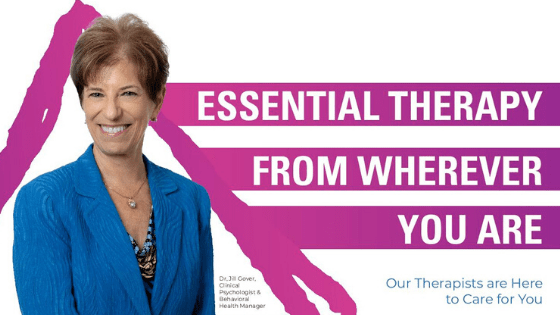
Mental Health Impacts Physical Well-Being
Mental health was at the forefront of the sports world in 2021 as two of the most prominent athletes had to withdraw from major competition.
Naomi Osaka, the highest-paid female athlete in the world according to Forbes Magazine, announced she would not participate in press conferences at the French Open to preserve her mental health. But as backlash built, Osaka decided to withdraw from Roland Garros, one of tennis’ four major championships.
A few months later, American gymnast Simone Biles, who was supposed to be the poster child for the American Olympic contingent, withdrew from the competition because of mental health despite being the gold medal favorite.
Both incidents were a microcosm of how mental health is treated in this country.
Dr. Jill Gover, the Director of Behavioral Health at DAP Health, said if an athlete suffered a sprained ankle that prevented them from competing, no one would blink an eye. When Osaka and Biles withdrew because of their mental health, they were roundly criticized.
“They would punish her like somehow, she was weak, or that, that she was letting down her team. This is something you just pull yourself up by your bootstraps and you keep going. It is not as real as a physical injury. But in every sense, it is,” Gover said. “The fact that she recognized that she needed to take care of her mental health in the same way that she would need to tend to a sprained ankle was really, truly brilliant of her.”
Through the criticisms, Biles and Osaka helped trigger a larger discussion about mental health and how it is critical, especially in these challenging times.
Osaka returned to the Coachella Valley this month to compete in the BNP Paribas Open in Indian Wells, the world’s fifth-largest tennis tournament and the site of her breakthrough title in 2018.
“It always helps when celebrities come forward and speak openly about their personal struggles with mental health issues,” Gover said. “It normalizes the experience and gives others permission to come forward and acknowledge their need for help. When famous people talk about mental health issues, it reduces stigma.”
And Osaka triggered a change. The WTA women’s tennis tour designed a program for the players’ mental health. And credit to Osaka’s sponsors, they stuck by her despite taking a break from the tour and televised matches.
In fact, she added 10 more brand sponsors, according to Forbes.
But if two beloved athletes who are set financially for life and at the top of their professions are suffering mental health, what does that mean for the rest of the population?
Gover thinks the anxiety people face is unprecedented. Americans are dealing with the pandemic and there’s uncertainty about the war in Ukraine. On top of that, there are economic inequities that are plaguing the middle class, such as student debt and inflation on top of challenging work environments for many professions during the pandemic.
“There are so many things to be incredibly anxious about,” Gover said. “We live in a very anxiety-provoking time period with so much going on. I cannot think of a more critical issue. There needs to be what I call mental health parity. We need to recognize that it is equal to our physical health and integrated with our physical health. There is no way you can have one without the other.”
In fact, Gover points out that mental health issues impact physical well-being.
“Mental health issues manifest somatically in the body,” Gover said. “For example, when people suffer from anxiety, they often have heart palpitations, dizziness, and other physical symptoms that are caused by their anxiety. When people are depressed, they frequently manifest the depression with fatigue and lethargy in the body.”
In addition to DAP Health, local mental health resources include:
RUHS Mental Health Urgent Care: 2500 N. Palm Canyon Drive Suite A4, Palm Springs, CA 92262
No need to call or schedule an appointment Open 7 days a week, 24 hours a day
Phone: 442-268-7000
Riverside County Crisis/Suicide Line: 951-686-4357 (951-686-HELP)
Riverside County Mental Health Outpatient and Crisis Clinic: 47825 Oasis Street, Indio, CA
Phone: 760-863-8455
Riverside Country “CARES” Line/Substance Abuse Referrals: 800-499-3008








